Debt Relief Specialist wants to share a settlement letter from Home Depot/Citibank. Bal. $2360.66 Offer $873.44 Savings $1487.22
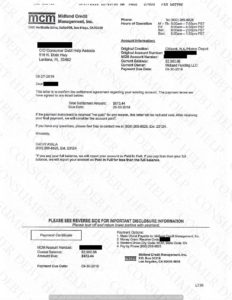
Debt Relief Specialist wants to share a settlement letter from Home Depot/Citibank. Bal. $2360.66 Offer $873.44 Savings $1487.22

Debt Relief Specialist wants to share a settlement letter from Sears/Citibank. Bal. $2078.97 Offer $769.22 Savings $1309.75
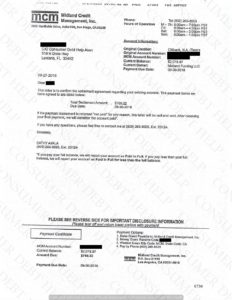
Consumers who are concerned about identity theft or data breaches can freeze their credit and place one-year fraud alerts for free.
Under the new Economic Growth, Regulatory Relief, and Consumer Protection Act, consumers in some states – those who previously had to pay fees to freeze their credit – will no longer have to do so.
A credit freeze, also known as a security freeze, restricts access to a consumer’s credit file, making it harder for identity thieves to open new accounts in the consumer’s name. The new law also allows parents to freeze for free the credit of their children who are under 16, while guardians, conservators, and those with a valid power of attorney can get a free freeze for their dependents.
In addition, the new law extends the duration of a fraud alert on a consumer’s credit report from 90 days to one year. A fraud alert requires businesses that check a consumer’s credit to get the consumer’s approval before opening a new account.
As part of its work to implement the new law, the Federal Trade Commission has updated its IdentityTheft.gov website with credit bureau contact information, making it easier for consumers to take advantage of the new provisions outlined in the law.
To place a credit freeze on their accounts, consumers will need to contact all three nationwide credit bureaus: Equifax, Experian, and TransUnion. Whether consumers ask for a freeze online or by phone, the credit bureau must put the freeze in place within one business day. When consumers request to lift the freeze by phone or online, the credit bureaus must take that action within one hour. (If consumers make these requests by mail, the agency must place or lift the freeze within three business days.)
To place a fraud alert, consumers need only contact one of the three credit bureaus, which will notify the other two bureaus.
Credit freezes and fraud alerts are two important steps consumers can take to help prevent identity theft. Identity theft was the second biggest category of consumer complaints reported to the FTC in 2017 — making up nearly 14 percent of all the consumer complaints filed last year. Consumers who believe they have been the victim of identity theft can report it and receive a personalized recovery plan at IdentityTheft.gov.
Debt Relief Specialist wants to share a settlement letter from Dillard’s/Wells Fargo. Bal. $1297.35 Offer $518.94 Savings $778.41

Debt Relief Specialist wants to share a settlement letter from Best Buy/Citibank. Bal. $7185.60 Offer $2514.96 Savings $4670.64
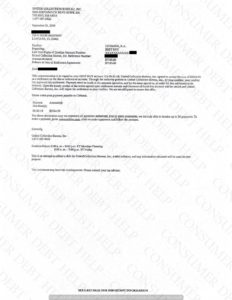
Debt Relief Specialist wants to share a settlement letter from Walmart/Synchrony Bank. Bal. $4621.08 Offer $1270.00 Savings $3351.08
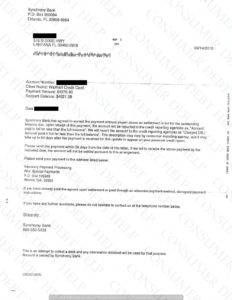
Debt Relief Specialist wants to share a settlement letter from Lowe’s/Synchrony Bank. Bal. $4300.53 Offer $1170.00 Savings $3130.53
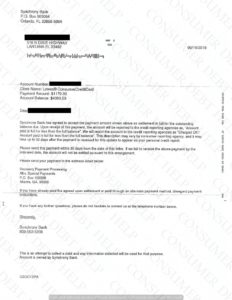
Debt Relief Specialist wants to share a settlement letter from Discover Bank. Bal. $3208.13 Offer $1284.00 Savings $1924.13
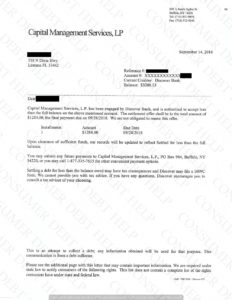
Debt Relief Specialist wants to share a settlement letter from Capital One. Bal. $926.94 Offer $325.00 Savings $601.94
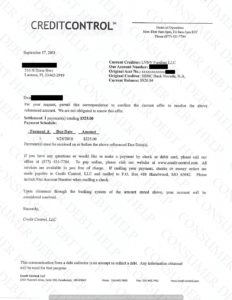
Debt Relief Specialist wants to share a settlement letter from Big Lots/Comenity Bank. Bal. $1674.18 Offer $420.00 Savings $1254.18
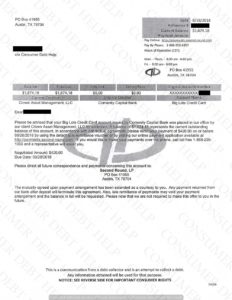
copyright 2024 Consumer Debt Help Association - 516 N. Dixie Highway, Lantana, FL 33462. All Rights Reserved